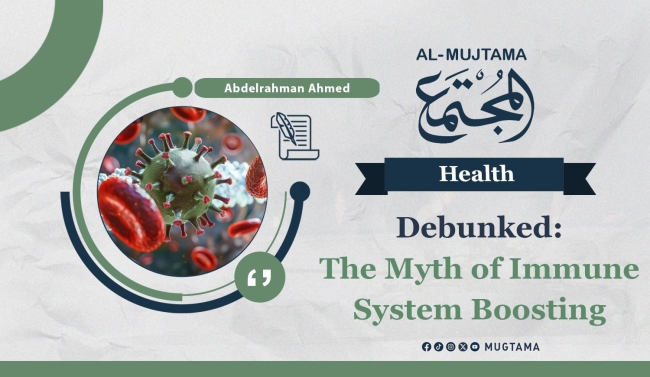In our quest for wellness and vitality, the allure of immune-boosting products and supplements often captivates us. From turmeric ginger shots to elderberry syrup, the promise of fortifying our body's defenses against illness seems too enticing to resist. Yet, amidst the myriad of health trends and marketing ploys, it's imperative to reassess our understanding of the immune system and debunk the pervasive myth of immune boosting.
At its core, the immune system is a marvel of biological complexity, comprising a dynamic network of cells, tissues, and organs meticulously orchestrated to protect the body from pathogens. Far from being a muscle that can be strengthened with a dose of antioxidants or supplements, the immune system operates through a sophisticated interplay of innate and adaptive mechanisms, each serving a distinct yet complementary role in safeguarding our health.
Innate immunity, our first line of defense, acts as a vigilant sentinel, swiftly identifying and neutralizing foreign invaders before they can wreak havoc within our bodies. Picture it as the bouncer at the door of a club, discerning between friend and foe, and ensuring only permitted guests gain entry. This innate defense system encompasses physical barriers like the skin, mucous membranes, and even the hairs in our nose, collectively forming an impenetrable fortress against microbial intrusion.
However, should a pathogen manage to breach these initial defenses, the adaptive immune system springs into action with remarkable precision and specificity. Unlike its innate counterpart, the adaptive immune response targets antigens – unique proteins on the surface of pathogens – akin to name tags that distinguish friend from foe. Through a meticulously choreographed process, specialized white blood cells called lymphocytes mobilize to eliminate the threat, all while retaining a memory of the encounter to mount a swift and targeted defense upon subsequent exposure.
This intricate dance of immune surveillance and response underscores the fallacy of immune boosting. Contrary to popular belief, the immune system cannot be bolstered like a muscle through indiscriminate supplementation. Rather, it operates within a delicate balance, finely tuned to recognize and respond to threats without overreacting or becoming hyperactive.
The analogy of a garden aptly illustrates this concept of immune equilibrium. Just as a garden thrives when each plant receives the right amount of sunlight, water, and nutrients, our immune system flourishes when supported by a diverse array of factors, including a healthy diet, adequate sleep, and regular exercise. Attempting to augment any single element risks upsetting this delicate balance, potentially compromising immune function and leaving us vulnerable to illness.
Moreover, the indiscriminate use of vitamin supplements and immune-boosting remedies may yield unintended consequences, with some studies suggesting potential harm rather than benefit. Excess vitamins and supplements, far from enhancing immune function, may disrupt the intricate regulatory mechanisms that govern our body's defenses, leading to adverse outcomes and undermining overall health.
In our pursuit of immune health, it is crucial to recognize the limitations of supplementation and instead focus on evidence-based strategies supported by scientific research. Among these, vaccines stand as a testament to human ingenuity, harnessing the power of the immune system to confer targeted protection against specific pathogens. By priming the body's defenses through exposure to weakened or inactive forms of a pathogen, vaccines equip our immune system with the tools it needs to mount a swift and effective response, sparing us the ordeal of illness and bolstering community immunity.
In essence, the key to optimal immune health lies not in futile attempts to "boost" our defenses, but rather in fostering a holistic approach to wellness that honors the intricacies of our body's immune system. By prioritizing lifestyle factors known to support immune function – from nutritious eating habits to adequate rest and stress management – we empower our body to perform at its best, allowing the immune system to fulfill its vital role as guardian of our health.
As we navigate the complexities of immune health in an age of misinformation and quick fixes, let us heed the wisdom of science and embrace a nuanced understanding of immunity. Let us move beyond the allure of immune boosting and instead cultivate a holistic approach to wellness that honors the resilience and adaptability of the human body. In doing so, we not only safeguard our own health but contribute to a healthier, more informed society grounded in evidence-based practices and a profound respect for the intricacies of our immune system.


